
“Please keep the socks on!” She takes them off. “Honey, it’s cold, keep them on!!” She takes them off and grins. “Look, I really think you should wear those socks. Come on!” (my voice gets louder and more impatient). She dances with the socks through the living room, throws them in the air and giggles “no socks, no socks, no socks”. That’s my two-year-old. At the same time my six-year-old is creating a big mess on the kitchen table when he spreads playdough literally everywhere, including into the food I’ve just prepared. My nine-year-old sits on the sofa and calls me for the twentieth time to read him his Asterix-comic. Paralysed I just stand there, watching the scenery. I feel like a bystander at a party, where everyone is having fun but me. Tears fill my eyes. I could scream. Or cry. Or just run away. Or maybe all three.
Normally, I would say that I’m a quite balanced, patient and easy-going dad and man. I love being a father and I’ve been supporting other fathers and men for more than 12 years. I did a lot of research, published a book on fatherhood and my wife and I have spent a lot of time reflecting on childhood, schooling, parenting and life. All sorted then?
Bang! The truth can sometimes feel so much harder and more painful than we think. It’s like looking into the mirror after a sleepless night, expecting to still look awesome. This year reality struck and I was reminded how much I still need to do, how much my inner child still needs attention, and how easy it seems to leave past wounds unattended and push problems aside when you live a busy life, trying to meet everybody else´s needs, especially my kids.
MEETING RESPONSIBILITY
At the beginning of last year, my father died. It wasn’t unexpected as he suffered from a tumour in his throat. No operation, no therapy could help. While he was getting treatment he nearly passed away twice. Both times I immediately took the plane to Berlin to see him, laden with anxiety and fear. Each time I wasn’t sure whether I would be too late. Sitting next to his hospital bed – or later with him, in his home – was painful. He couldn’t talk and I tried my best to interpret and meet his physical and emotional needs. I felt responsible for him. Caring for his physical needs, sharing these intimate moments with my dad, who I did not feel close to for so many years, felt strange at first, but then, to my surprise, quickly became natural. I cooked nourishing food for my mother and held her when she cried. Even though my childhood was nowhere near perfect, it felt like I was able to give a little bit of nurturing back and my parents both very much appreciated my practical as well as emotional support.
THE LAST TIME
The last time I saw my dad was three weeks before he died. When we met, I somehow knew this was going to be the last time. Forever. The relationship between him and me wasn’t always the best. In our family we didn’t talk much about feelings and emotions in general. My parents had certain expectations of life and my siblings and I. However, the problem was me; I didn’t comply. I had my own ideas, I didn’t follow their hopes and dreams for me. Instead I made plans of my own. Following my dreams, my aspirations, my hopes. So, I didn’t finish university, didn’t apply for that “safe” 9 to 5 job and didn’t opt for a mortgage that would have enslaved me for the next twenty or so years.
My dad wasn’t present when I made important choices in my life, like leaving Germany. Often silence was his disapproval. He only voiced his concerns a few times, in regards to our parenting and our children’s education. In his world there was little space for alternative routes.
The very last meeting with my dad wasn’t easy. We only had one hour. One hour where his medication didn’t fog his mind, one hour where I could talk to him about us. He wasn’t able to speak but pen and paper gave him a voice, for the last time. I didn’t use our precious minutes to blame him for our difficulties. Nor did I judge him. I held his weak, cold hands – and gave love. Under tears I told him about the beautiful things he did for me. Stories about grandchildren that he hardly ever saw, and memories from my childhood – like how we went to the woods to collect mushrooms every autumn – were my last present to him. We looked in each other’s eyes – silence, tears, hugs, unspoken words, connection and love. Then he wrote a few words onto a piece of paper. His last present to me. Those incredibly heartfelt words mean a lot to me, never before had he been so open and vulnerable towards me.
I had ignored my own body’s signals for too long. The anxiety, the worries, the good and bad memories.
CLOSING A CHAPTER
Three weeks later my father died. I went back to Germany to see my mother, my sister and to fulfil my mum’s wish to say a few words at the funeral. I did my best and comforted my mother whenever I could. At the same time I believed that with the funeral and the farewell to my father, I could also close another chapter from my past and childhood. I thought I had made peace with him. However, it wasn´t going to be that easy.
Months passed and family life got busy. New jobs, moving and some other challenges were added to our daily job of parenting. Processing my father’s death, my inner wounds had no space in my mind and soul. I could feel that something wasn’t quite right with me. I started to feel unwell, tired, irritated, impatient, snappy and I had back-pains which I remember from my early twenties. At night I was tossing around or waking up shaking and sweating. Still, I kept going. To the point where I collapsed. Two days after my dad’s birthday. He would have been seventy-three.
At the hospital they couldn’t find anything. I was healthy. However, I still felt the back-pains and dizziness, so I tried my luck with an osteopath. Meeting him changed everything. I thought he would do some bone-breaking moves to get them into their right place, so I would feel better. Instead he did something so much better for me. He listened. For an hour I was just talking – about my children, my job, the changes in my life, and my dad. Subconscious and unresolved emotions and feelings made their way up and reminded me that they were still present inside.
After the long talk he examined me. I kept talking and more and more stuff was brought to the light. Again, he was listening, asking questions and taking care of me. He concluded that my breakdown was a panic attack and that I mainly needed to deal with the emotional aftermath of my father’s death and the big changes in my life. He could see some problems with the liver and subscribed supplements.
I had ignored my own body’s signals for too long. The anxiety, the worries, the good and bad memories. And I’m not alone on this ride: according to several studies, published in the Journal of the Royal Society of Medicine, “long-term effects of parental loss indicate that filial bereavement can impact both mental and physical health, with men being more likely to report physical health issues.” These studies show a rise in depression, anxiety, and substance abuse, especially when the person has not received enough support during their bereavement. Even though I’m not depressed and my wife had supported me well after my father had died, I still had taken too little time to grieve and take care of myself.
I decided that’s where I had to start now. I wanted to be that loving, patient, calm and empathic father again. Pushing problems aside didn’t help at all. My osteopath suggested to start writing an honest letter to my father, without caring about grammar or spelling, and knowing that nobody would ever read it. Every day. To speak about all unspoken things and to offload the heavy weightg I’ve been carrying. Then, when I think I’m done, I should forgive my father everything as I would forgive myself and finish the letter with a feeling of peace and love. Well, I’m still writing and I feel the burden getting smaller and lighter with each page I write.
For my physical health I started to do yoga and tai-chi. I love the movements and deep connection between body and mind. I feel more grounded, calm and strong again. I also keep going with sticking to a vegan diet, with the occasional treat.
Also I decided to get help from a psychotherapist. It took me a moment to get easy with that step, but I pledged to become healthy again – emotionally and physically. The wise words “if we want to take better care of our children, we have to take better care of ourselves” by Harville Hendrix and Helen Hunt, became my mantra. I want to be the hands-on dad again who can listen with empathy and patience. This is the least I can do for my family. And, do you know what my father had written in his last few lines to me? “You have chosen your path wisely. Keep going!” Yes, dad, I will. Promise.
This article was originally published in The Green Parent.

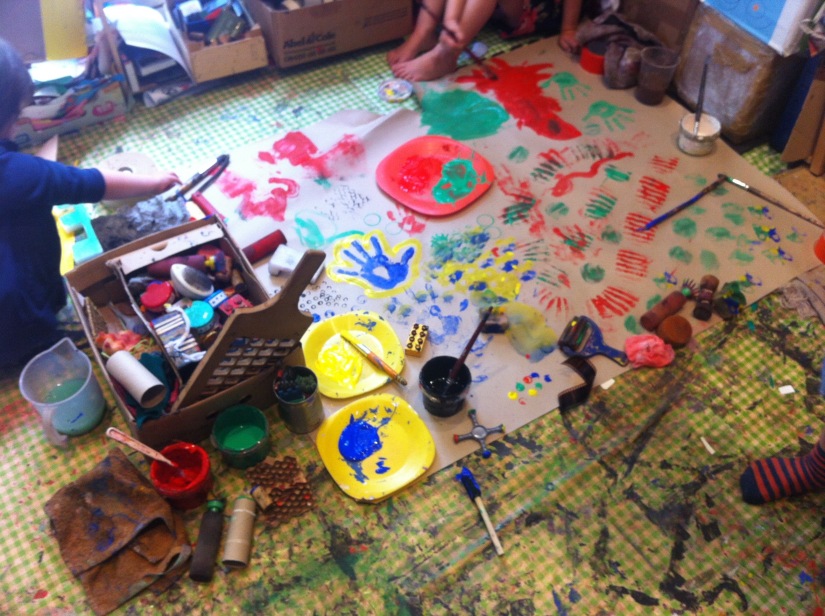
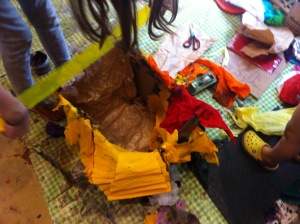 The way I provide this for the children is first working in smaller groups. This way I am able to model positive social behaviour, positive communication skills, nurture their own creativity, help them develop their own methodologies, help them understand their creative process and their needs, guide them how to work collaboratively in groups, meet all their emotional needs, encourage risk, facilitate critical thinking and problem-solving skills. All this side of the learning experience goes “under the radar” for them, as I focus on delivering all this through kindness, playfulness, empathy, compassion, active listening, asking them questions about their explorations and having fun with them.
The way I provide this for the children is first working in smaller groups. This way I am able to model positive social behaviour, positive communication skills, nurture their own creativity, help them develop their own methodologies, help them understand their creative process and their needs, guide them how to work collaboratively in groups, meet all their emotional needs, encourage risk, facilitate critical thinking and problem-solving skills. All this side of the learning experience goes “under the radar” for them, as I focus on delivering all this through kindness, playfulness, empathy, compassion, active listening, asking them questions about their explorations and having fun with them.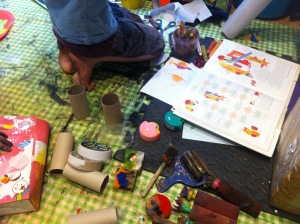 In the world we live in, I feel the responsibility for educating children for their future. We need more young people who can make a positive change in our society, contribute to their own lives as well as others, be satisfied with what they do, embrace their uniqueness, share that uniqueness with others, have the tools to make this world a better place. I feel very strongly that we need to invest in our children.
In the world we live in, I feel the responsibility for educating children for their future. We need more young people who can make a positive change in our society, contribute to their own lives as well as others, be satisfied with what they do, embrace their uniqueness, share that uniqueness with others, have the tools to make this world a better place. I feel very strongly that we need to invest in our children. Kiki trained as a Graphic Designer in Florence, Italy before coming to England to study BA (Hons) Fine Arts at Byam Shaw Art School at Central St. Martins, London. She was a founding member of small democratic primary school in SE London. She has been featured as a homepreneur in Sainsbury’s Magazine March 2015 edition. She has contributed to a number of events and workshops such as
Kiki trained as a Graphic Designer in Florence, Italy before coming to England to study BA (Hons) Fine Arts at Byam Shaw Art School at Central St. Martins, London. She was a founding member of small democratic primary school in SE London. She has been featured as a homepreneur in Sainsbury’s Magazine March 2015 edition. She has contributed to a number of events and workshops such as 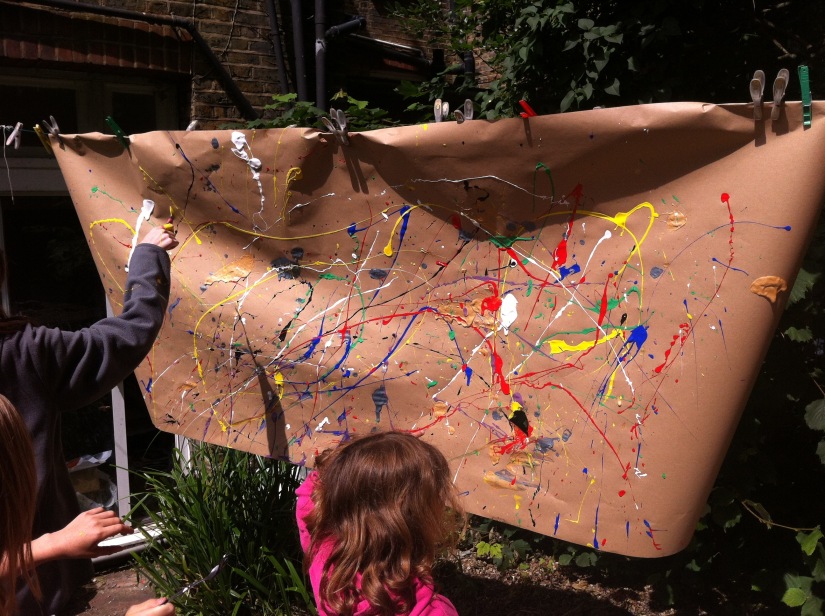


 Let’s start with Eric D. Greene aka
Let’s start with Eric D. Greene aka  Joanna Steven’s site,
Joanna Steven’s site, 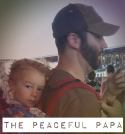 Many of you probably know Josh K aka
Many of you probably know Josh K aka 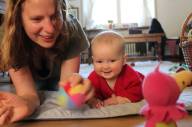 Just very recently I linked up with
Just very recently I linked up with 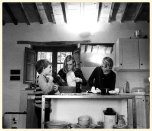 Lehla and Anthony Eldridge-Rogers live with their three children in Italy. On their family blog
Lehla and Anthony Eldridge-Rogers live with their three children in Italy. On their family blog  The world of my friend
The world of my friend 
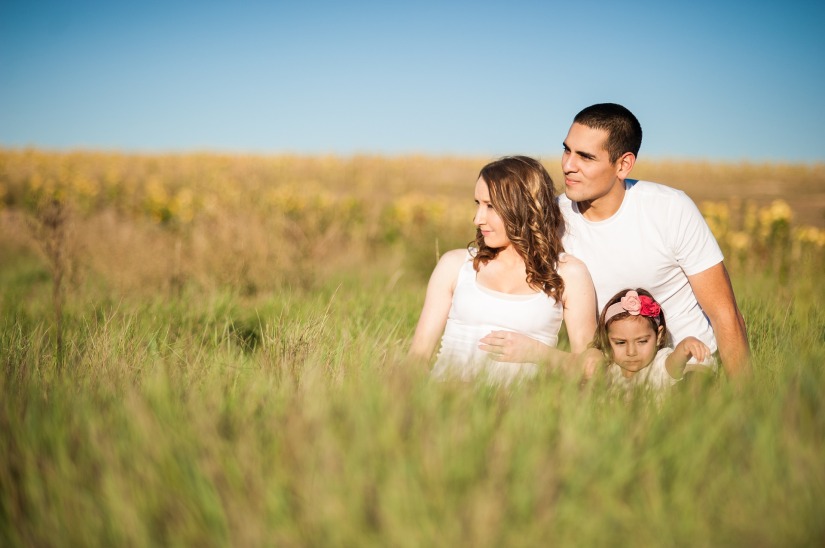
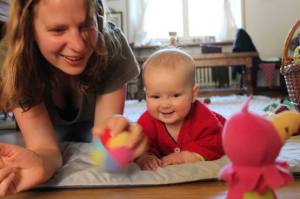 Kate Orson is a writer, and Hand in Hand parenting instructor. Originally from the UK she now lives in Basel, Switzerland with her husband the author Toni Davidson, and their 4 year old daughter. Her book Tears Heal: How To Listen To Children, is now available to pre-order here
Kate Orson is a writer, and Hand in Hand parenting instructor. Originally from the UK she now lives in Basel, Switzerland with her husband the author Toni Davidson, and their 4 year old daughter. Her book Tears Heal: How To Listen To Children, is now available to pre-order here  In my series about inspirational fathers, I would like to introduce to you Anthony Eldrigde-Rogers. Anthony lives with his partner and their three unschooled children in Italy and he’s interested in many, many exiting things: He has been involved in photography, film making, commercials production, pop videos, producing, directing….marketing PR, environmental projects….writing screenplays…then there was farming fruit and having a restaurant…to name but a few. He has always been interested in people, how people live and make sense of their lives. Now Anthony is working as a Recovery and Wellness Coach…. he trains coaches, and is writing a book (soon to be published), plus various plants for retreats and… you see, the list is long!
In my series about inspirational fathers, I would like to introduce to you Anthony Eldrigde-Rogers. Anthony lives with his partner and their three unschooled children in Italy and he’s interested in many, many exiting things: He has been involved in photography, film making, commercials production, pop videos, producing, directing….marketing PR, environmental projects….writing screenplays…then there was farming fruit and having a restaurant…to name but a few. He has always been interested in people, how people live and make sense of their lives. Now Anthony is working as a Recovery and Wellness Coach…. he trains coaches, and is writing a book (soon to be published), plus various plants for retreats and… you see, the list is long!
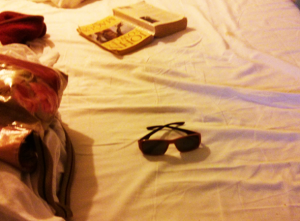 Those trips were and are gorgeous. Not only do we get the chance to slow down and chill and just have a bit of quiet but we get to have a conversation for as long as we want without getting interrupted! Yay! That’s adult gold.
Those trips were and are gorgeous. Not only do we get the chance to slow down and chill and just have a bit of quiet but we get to have a conversation for as long as we want without getting interrupted! Yay! That’s adult gold.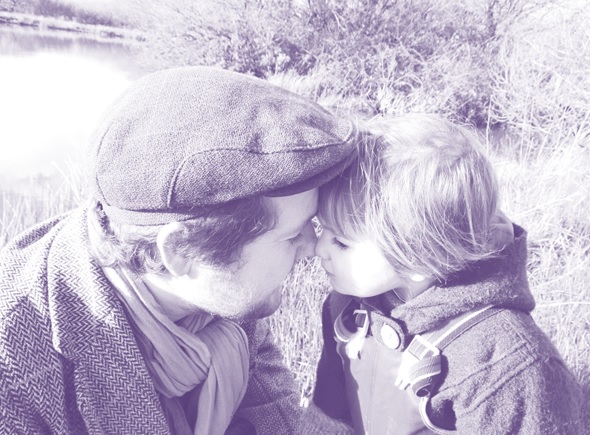

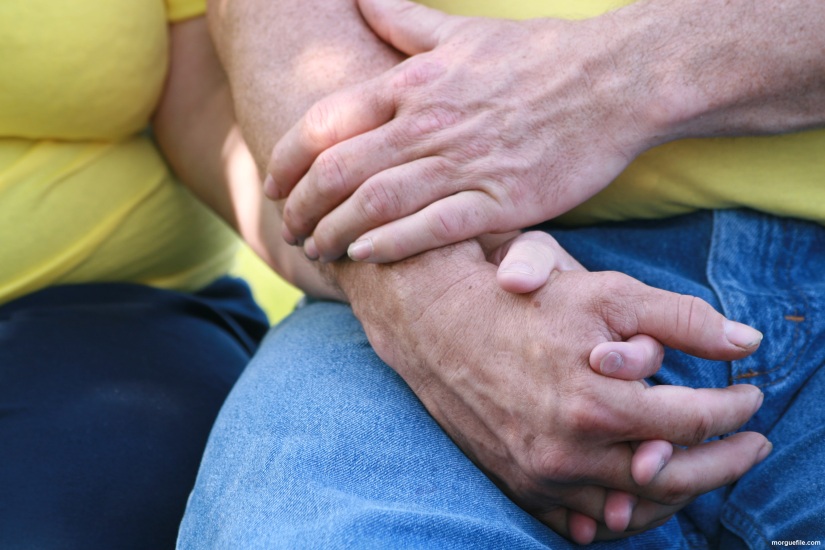 Recently I came across the book “Attached” by Amir Levine and Rachel Heller, as well as articles about the topic of how attachment styles influence our relationships. Having been interested in Attachment Theory since my first baby was born, I was intrigued about how my wife and I can use attachment theories wisdoms on our couple relationship.
Recently I came across the book “Attached” by Amir Levine and Rachel Heller, as well as articles about the topic of how attachment styles influence our relationships. Having been interested in Attachment Theory since my first baby was born, I was intrigued about how my wife and I can use attachment theories wisdoms on our couple relationship. I wrote before about how essential our first bonding experiences to our caregivers are and that when our needs are not met at all or not all the time, we can end up longing for this sense of security and feeling of being loved unconditionally as adults . And this often influences how we are relating to our partners. In other words, the fears and needs of our childhood travel with us into adulthood and we re-enact certain situations and struggle with connecting to our partner out of fear of abandonment or rejection.
I wrote before about how essential our first bonding experiences to our caregivers are and that when our needs are not met at all or not all the time, we can end up longing for this sense of security and feeling of being loved unconditionally as adults . And this often influences how we are relating to our partners. In other words, the fears and needs of our childhood travel with us into adulthood and we re-enact certain situations and struggle with connecting to our partner out of fear of abandonment or rejection.
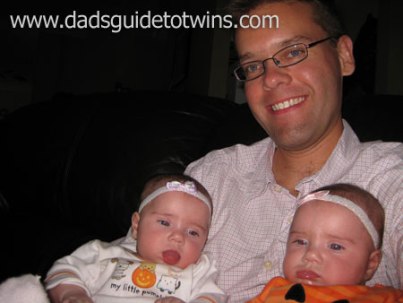 It was supposed to be just a normal visit to the doctor. We had found out that my wife was pregnant. This would be our third child.
It was supposed to be just a normal visit to the doctor. We had found out that my wife was pregnant. This would be our third child. Despite the intensity of the first several months, we made progress with each passing week with our twins.
Despite the intensity of the first several months, we made progress with each passing week with our twins.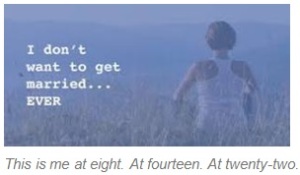

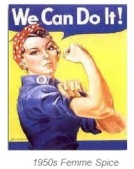 I do remember however, the strong, determined message to learn to support myself. To not rely on anyone else, to get a good education, to get a good job, to never truly be dependent on anyone, especially financially. This was the eighties and nineties, after all. Sisters were doing it for themselves and all that. Girl Power.
I do remember however, the strong, determined message to learn to support myself. To not rely on anyone else, to get a good education, to get a good job, to never truly be dependent on anyone, especially financially. This was the eighties and nineties, after all. Sisters were doing it for themselves and all that. Girl Power.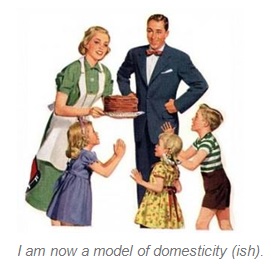 Friends from my old pre-child life can’t still believe how extensively I’ve gone full earth mother. Not just one, but three children in less time than it takes to renew your passport (ish). We haven’t gone down the nursery or childminder route, as I have zero intention of going back to my previous career. I am a properly 1950s housewife, with the pinny to prove it.
Friends from my old pre-child life can’t still believe how extensively I’ve gone full earth mother. Not just one, but three children in less time than it takes to renew your passport (ish). We haven’t gone down the nursery or childminder route, as I have zero intention of going back to my previous career. I am a properly 1950s housewife, with the pinny to prove it.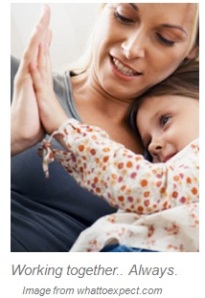 magnified by it as its such a responsive way to communicate with our babies – and that is mothers (in the main) who are admirably giving everything they have to meet the many and significant needs of their babies, and totally neglecting their own needs, let alone that of the significant others in their life.
magnified by it as its such a responsive way to communicate with our babies – and that is mothers (in the main) who are admirably giving everything they have to meet the many and significant needs of their babies, and totally neglecting their own needs, let alone that of the significant others in their life.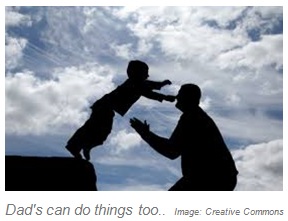 Let Dad be the one to do bathtime. Encourage him to get in on the sling action (he might get more addicted than you at churning stash). And especially when babies turn into toddlers, Dad’s are great at playing, at reading, even just being the one who gets to have a cuddle when its quiet time. The more you let them in, the more they can support you. The closer they’ll be to your children, and therefore to this brave new world of motherhood you’ve entered. The closer you’ll be as a family.
Let Dad be the one to do bathtime. Encourage him to get in on the sling action (he might get more addicted than you at churning stash). And especially when babies turn into toddlers, Dad’s are great at playing, at reading, even just being the one who gets to have a cuddle when its quiet time. The more you let them in, the more they can support you. The closer they’ll be to your children, and therefore to this brave new world of motherhood you’ve entered. The closer you’ll be as a family.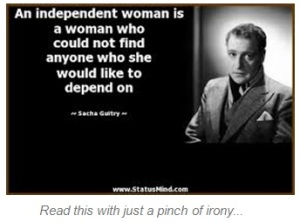 For me, the principles of Attachment and Gentle Parenting therefore need to be reinforced with a big giant caveat…
For me, the principles of Attachment and Gentle Parenting therefore need to be reinforced with a big giant caveat…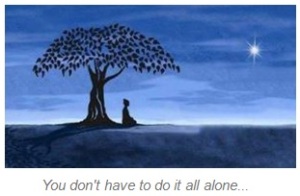 I still don’t believe that a perfect family has to be a 2.4 – perhaps less so now that I actually have that. For me, it was the biggest risk I’ve ever taken. Actually wanting the life you’re supposed to have after spending so many years renouncing it. I met someone that I actually wanted to rely on.
I still don’t believe that a perfect family has to be a 2.4 – perhaps less so now that I actually have that. For me, it was the biggest risk I’ve ever taken. Actually wanting the life you’re supposed to have after spending so many years renouncing it. I met someone that I actually wanted to rely on.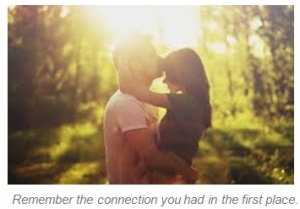 There are times when you flat out want to punch someone in the face for Just. Not. Getting. It. But there are times when you have that little something to give, that extra kiss in the morning, the appreciation of the hard day they’ve had. It’s not always about you, even when they scream at you that it is.
There are times when you flat out want to punch someone in the face for Just. Not. Getting. It. But there are times when you have that little something to give, that extra kiss in the morning, the appreciation of the hard day they’ve had. It’s not always about you, even when they scream at you that it is. JL Morse is an
JL Morse is an